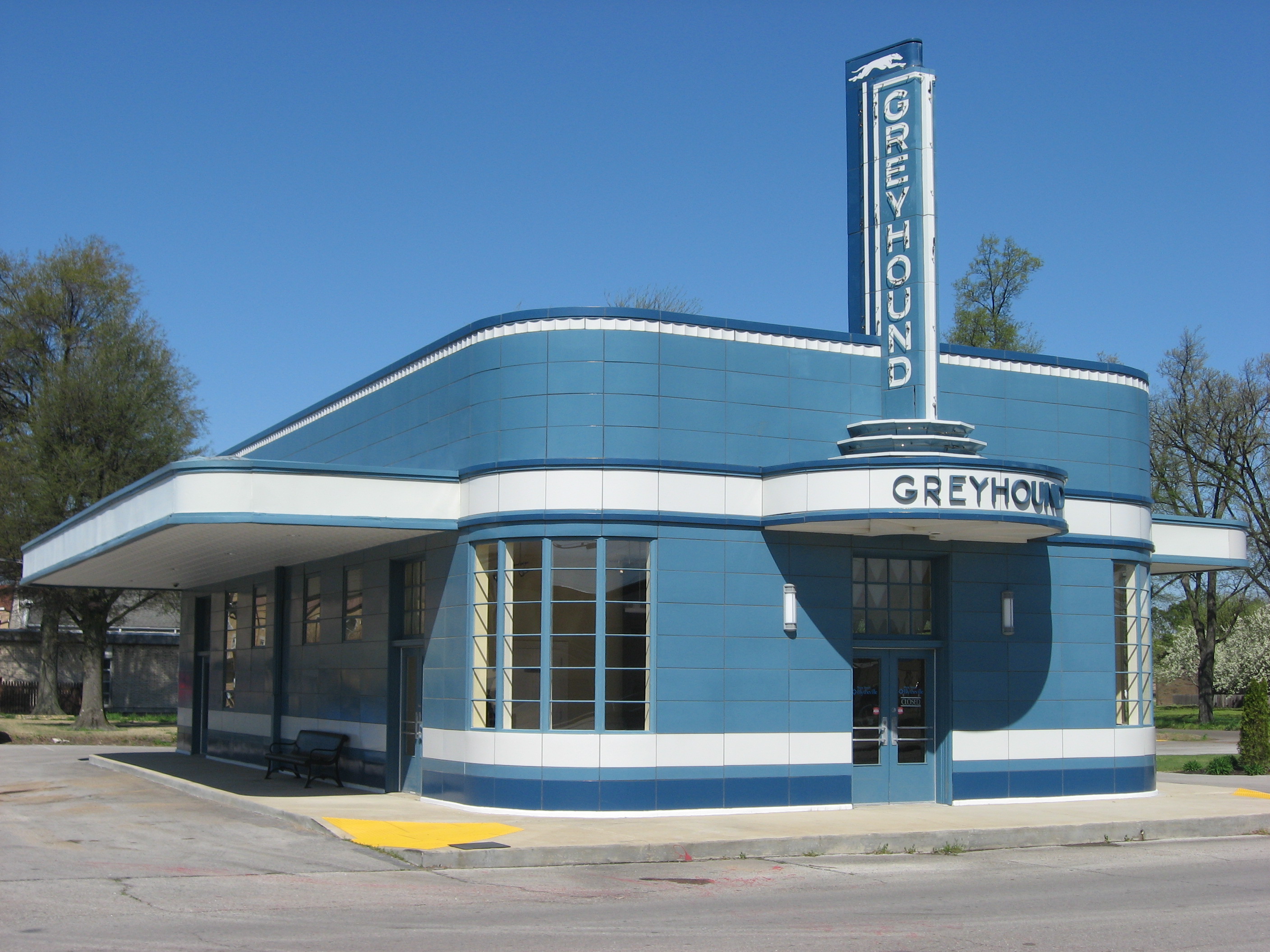|
S. H. Kress And Co. Building (Blytheville, Arkansas)
The Kress Building is a historic commercial building at 210 West Main Street in Blytheville, Arkansas. It is a two-story concrete and steel structure, faced in brick and terra cotta. The building is the home of the Delta Gateway Museum, which interprets the history of the city of Blytheville and the surrounding area. History Built in 1938, it was one of the first buildings in the city to be built using steel framing, and is considered by the Arkansas Historic Preservation Program as one of its finest Art Deco structures in the state. S. H. Kress and Co. operated from the store until 1974. A Family Dollar Store operated from the building from the mid to late 80's. Later, the building housed the local United Way. It was donated to the town and then renovated in 1997 to serve as the Blytheville Heritage Museum and the Blytheville office of Main Street Arkansas. The building was listed on the National Register of Historic Places in 1997. It is in the Blytheville Commercial Histor ... [...More Info...] [...Related Items...] OR: [Wikipedia] [Google] [Baidu] |
Blytheville, Arkansas
Blytheville is the county seat and the largest city in Mississippi County, Arkansas, United States. It is approximately north of West Memphis. The population was 13,406 at the 2020 census, down from 15,620 in 2010. History Blytheville was founded by Methodist clergyman Henry T. Blythe in 1879. It received a post office the same year, was incorporated in 1889, and became the county seat for the northern half of Mississippi County (Chickasawba District) in 1901. Blytheville received telephone service and electricity in 1903, and natural gas service in 1950. Forestry was an early industry, spurred by the massive harvesting of lumber needed to rebuild Chicago following the Great Fire of 1871. The lumber industry brought sawmills and a rowdy crowd, and the area was known for its disreputable saloon culture during the 1880s and 1890s. The cleared forests enabled cotton farming to take hold, encouraged by ongoing levee building and waterway management; the population grew significant ... [...More Info...] [...Related Items...] OR: [Wikipedia] [Google] [Baidu] |
National Register Of Historic Places Listings In Mississippi County, Arkansas
__NOTOC__ This is a list of the National Register of Historic Places listings in Mississippi County, Arkansas. This is intended to be a complete list of the properties and districts on the National Register of Historic Places in Mississippi County, Arkansas, United States. There are 44 properties and districts listed on the National Register in the county, including 2 National Historic Landmarks. Another two properties were once listed but have been removed. Current listings Former listings See also *List of National Historic Landmarks in Arkansas *National Register of Historic Places listings in Arkansas This is a list of properties and historic districts in Arkansas that are listed on the National Register of Historic Places. There are more than 2,600 listings in the state, including at least 8 listings in each of Arkansas's 75 counties. Num ... References {{Mississippi County, Arkansas Mississippi Count ... [...More Info...] [...Related Items...] OR: [Wikipedia] [Google] [Baidu] |
1938 Establishments In Arkansas
Events January * January 1 ** The new constitution of Estonia enters into force, which many consider to be the ending of the Era of Silence and the authoritarian regime. ** State-owned railway networks are created by merger, in France (SNCF) and the Netherlands (Nederlandse Spoorwegen – NS). * January 20 – King Farouk of Egypt marries Safinaz Zulficar, who becomes Queen Farida, in Cairo. * January 27 – The Honeymoon Bridge at Niagara Falls, New York, collapses as a result of an ice jam. February * February 4 ** Adolf Hitler abolishes the War Ministry and creates the Oberkommando der Wehrmacht (High Command of the Armed Forces), giving him direct control of the German military. In addition, he dismisses political and military leaders considered unsympathetic to his philosophy or policies. General Werner von Fritsch is forced to resign as Commander of Chief of the German Army following accusations of homosexuality, and replaced by General Walther vo ... [...More Info...] [...Related Items...] OR: [Wikipedia] [Google] [Baidu] |

